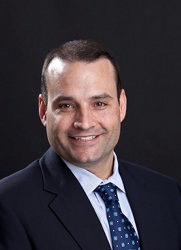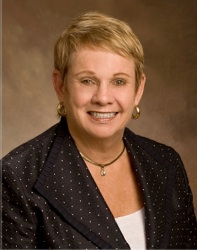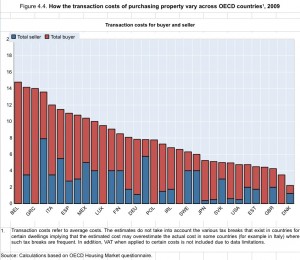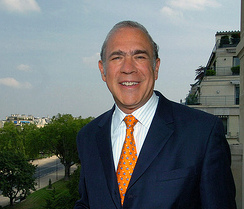Posted by Elena del Valle on January 31, 2011


Mark Moore, president, and Bill Peppler, managing partner, Kavaliro
Photos: Kavaliro
A podcast interview with Bill Peppler, managing partner, and Mark Moore, president, Kavaliro is available in the Podcast Section of Hispanic Marketing & Public Relations, HispanicMPR.com. During the podcast, they discuss job market trends with Elena del Valle, host of the HispanicMPR.com podcast.
With more than 13 years of experience in the technology, financial staffing and consulting industries, Bill is responsible for overseeing operations and developing additional new markets for Kavaliro in the Southeast, including Charlotte, North Carolina. Before coming to Kavaliro, he worked in the Orlando, Seattle and San Diego markets for international staffing and recruiting organizations. He has recruited personnel for Microsoft, Amazon.com, and Boeing among others.
Mark oversees and helps to navigate the overall direction of Kavaliro. He is involved in strategic partnerships and the development of large capital accounts for the business. He has more than 12 years of experience in the government contracting, technical services, information technology, banking and professional services industries. He established and oversees offices in Orlando, Florida and Charlotte, North Carolina.
To listen to the interview, scroll down until you see “Podcast” on the right hand side, then select “HMPR Bill Peppler, Mark Moore” click on the play button below or download the MP3 file to your iPod or MP3 player to listen on the go, in your car or at home. To download it, click on the arrow of the recording you wish to copy and save it to disk. The podcast will remain listed in the January 2011 section of the podcast archive.
Posted by Elena del Valle on January 28, 2011

Photos: Kaplan Publishing
In 2008, there were 2.3 million criminals in jail in United States which was a greater number than any other nation, according to the International Center for Prison Studies at King’s College London. In addition to that every year one million teenagers are locked up in the United States. Over time many of the former teenagers become adult offenders and are sent to jail adding to the already large prison population.
A circuit court judge in Florida’s Unified Family Court says there’s a better way to deal with teenagers who get into trouble. She believes the juvenile justice system needs to be reformed. She shares her ideas through examples from her courtroom in a recently published book Raised by the Courts: One Judge’s Insight into Juvenile Justice (Kaplan Publishing, $24.99).

Raised by the Courts book cover
“Alternatives to imprisoning young people exist that are more effective, less costly, and more humane,” she said. “We don’t need to spend money developing and testing new solutions. We need to support, adopt, and expand access to the many cost-effective programs that have proven to work, such as prevention of child abuse, parent counseling, family therapy, youth court and other diversion services, truancy reduction programs, and many others. Instead of paying for failure, we should invest in success. Our nation’s children deserve our concern and conscientious dedication to their futures and ours.”
The 285-page hardcover book is divided into three sections, Awakening, Despair and Enlightenment; 28 chapters and two appendices about Programs That Work and Online Resources.
The author points out in the Opening Statement of her book that even before the recession began Florida had poor scores in health, human services and education. In 2009, the state ranked forty-fifth in high school graduation rates and personal income growth and forty-ninth in state and local government spending on education yet it was third for spending on incarcerating adults and children. In spite of that she believes the southern state can be proud of having “some of the most progressive, effective juvenile programs in the country.”

Judge Irene Sullivan
At the end of the book she proposes ten principles that should guide the juvenile justice system in the future including: treating adolescents with significant mental health problems at mental health facilities rather than jails; providing gender specific services for adolescents; taking into account maturity levels and brain development when dealing with youth; and identifying at-risk children and families and addressing their situation.
Since 1999 Irene Sullivan has been a circuit court judge in Florida’s Unified Family Court. She is a member of the American Bar Association Commission on Youth at Risk, the National Truancy Prevention Association, the Florida Blueprint Commission to reform juvenile justice, and a statewide task force on Disproportionate Minority Contact.

Click to buy Raised by the Courts
Comments:
Filed Under: Books
Posted by Elena del Valle on January 26, 2011

Click to enlarge
Graphic, photo: Organization for Economic Co-operation and Development (OECD)
As we look back at the housing market over the past few years and its impact on the economy it is still difficult to understand what exactly went wrong and what it may take to keep it from happening again. Seeing how other developed countries stand on the housing issue may give us some perspective and insights on how to move forward in the future.
According to Housing and the Economy: Policies for Renovation, a recently released chapter from the book Economic Policy Reforms 2011 Going for Growth from the Organization for Economic Co-operation and Development (OECD), which tracks changes in 29 developed countries including the United States, poor housing policies played an important role in triggering the recent economic and financial crisis.
The chapter looks at ways in which housing policies might be designed for better results. The Organization’s analysts believe “effectively supervised financial and mortgage market development combined with policies that enhance housing supply flexibility are key for macroeconomic stability.”
Here are some of the analysts conclusions and recommendations from the chapter: Appropriate housing policies, designed for efficiency and equitability, can help residential mobility, match workers with jobs and assist the job market recovery. Any changes in the mortgage markets should be accompanied by regulatory oversight and careful banking regulations; and housing supply responsiveness to demand has the potential for improvement in many of the markets examined as long as investment in residential real estate is dealt with to avoid volatility.

Angel Gurria, secretary-general, OECD
“OECD countries have seen the damage caused by badly designed policies through their effects on housing markets,” said Angel Gurria, secretary-general, OECD in a press release. “As we search for new sources of growth, as we seek to restore trust in our financial sectors, as we try to green our economies, policies related to housing can have a huge impact on our future”.
The United States is in good company when in comes to housing and economic problems. The OECD says that easy credit over the past two decades increased the volatility of prices resulting in housing price jumps of 90 percent or higher in Australia, Belgium, Finland, Ireland, Netherlands, New Zealand, Norway, Spain and the United Kingdom over the study period. Poor supervisory systems alongside deregulation and innovation in mortgage markets led in part to a “significant relaxation in lending standards, an increase in non-performing loans and the sub-prime crisis.”
The Organization recommends an increase in responsiveness of new housing supply to market demand, specifically the revisiting of licensing procedures that limit new housing projects and reconsidering land-use regulations that unduly prevent development. Its analysts believe a better supply may lead to less price volatility, fewer excessive price increases and encourage labor mobility.
It also supports the elimination of tax policies that favor housing over other types of investments. Such favoritism can lead to cheap lending fees which can lead to excessive investment, speculation and price volatility while at the same time limiting mobility. It encourages a system in which property taxes more accurately reflect the true market value of property.
Posted by Elena del Valle on January 24, 2011

Click to enlarge
Photos: Organization for Economic Co-operation and Development, Peter Sommer, Ph.D.
How fragile are our cyber systems? How much effort and sophisticated technology would it take to bring a company or a government office down with a cyber attack? What about a global disruption? Although the technology is constantly changing and no one seems to know the answers for sure there is concern and much speculation on the topic.
A reassuring report released last week indicates it would be difficult to cause serious problems on a world wide scale although it cautions that “Governments nevertheless need to make detailed preparations to withstand and recover from a wide range of unwanted cyber events, both accidental and deliberate. There are significant and growing risks of localised misery and loss as a result of compromise of computer and telecommunications services.”
Examples of single cyber-related events with vast capacity for damage could include an attack on one of the technical protocols the Internet depends on like the Border Gateway Protocol which determines routing between Internet Service Providers; and a very large-scale solar flare if it physically destroys key communications components like satellites, cellular base stations and switches.
What about malicious attacks designed for espionage, to affect distributed denial of service, and the acts of criminals, recreational hackers and hacktivists? According to the two researchers who authored the report such attacks would have a local impact and a brief duration.
They believe cyber warfare is the source of myths mostly. The reason they believe such a situation would be unlikely is because essential computer systems are designed to resist such attacks and malware. Because identifying the actual attackers in cyber attacks is very difficult they suggest defense against cyberweapons should focus on resilience, a combination of preventative measures and alternative plans to allow rapid recovery in case of a successful attack.
They also point out that a significant portion of the infrastructure is most of the countries they studied (OECD countries) are privately owned and not government controlled.

Peter Sommer, Ph.D., coauthor, Reducing Systemic Cybersecurity Risk
“The specific challenges faced by the US, apart from the range of entities that regard it as a target, are the number of powerful Departments (and their supporters in the Senate, the Congress and the arms industry lobbyists) all claiming that they should lead,” said Peter Sommer, Ph.D., coauthor of the report, by email in response to a question about the cyber risk issues as they relate to the United States. “The main players are: the Pentagon (and indeed individual armed services), Department of Homeland Security, Department of Commerce, NSA and FBI. So far President Obama and his cybersecurity advisor Howard Schmidt do not appear to have been able to knock heads together.”
Sommer, visiting professor in the Information Systems and Innovation Group in the Department of Management at the London School of Economics, and Ian Brown, Ph.D., research fellow, Oxford Internet Institute, Oxford University are the coauthors of Reducing Systemic Cybersecurity Risk, a 121-page report published by the Organization for Economic Co-operation and Development (OECD), part of the OECD/International Futures Programme Project on Future Global Shocks.
Brown’s research is focused on public policy issues around information and the Internet, particularly privacy and copyright. He also works in the more technical fields of communications security and healthcare informatics. The Organization for Economic Co-operation and Development provides a forum for member governments to compare policy experiences, “seek answers to common problems, identify good practice and coordinate domestic and international policies.”
Posted by Elena del Valle on January 21, 2011

Surrounded by Geniuses book cover
Photo: Sourcebooks, Inc.
In this down economy many people are earning less than they used to and struggling to keep their jobs with employers who take their employees for granted. Smart businesses, some believe, nurture their employees and their abilities. One business consultant believes it is possible and worthwhile to improve business performance, solve problems, and develop the types of new opportunities that provide a company the extra entrepreneurial edge to carry it through in the long term. In his book Surrounded by Geniuses: Unlocking the Brilliance in Yourself, Your Colleagues and Your Organization (Sourcebooks, Inc., $15.99) first published in 2007 Alan Gregerman, Ph.D., a Maryland consultant, shares his ideas on the subject. Last year a softcover edition of the book was published.
The author believes there is genius “hidden within all of us.” Furthermore he is convinced that the genius can be leveraged to “transform any company or organization in order to deliver compelling customer value.” The idea is that people around us are capable of contributing fresh ideas and perspectives that benefit the way we do things. The secret is to look at the ourselves and others in a different way from what we are used to; and to discover genius all we need is the “right insight and the right circumstances,” according to the author.
In the chapter on finding brilliance within ourselves he starts out by recommending that readers figure out what they are passionate about. He uses singing as a way to illustrate his point because singing fascinates him; his suggestion is for readers to “Find the Song in You.” The essence of his recommendation is to identify the concept that inspires you to make a difference and believe that you can make a compelling difference. The road to making a difference, according to Gregerman, is paved with curiosity. He suggests asking questions, finding new ideas, talking to strangers whose ideas appeal to you, getting involved in organizations that are making a difference in your community, developing relationships with new people, and mentoring others.
The 250-page book is divided into three parts, The Context, Ten Journeys and Building a New Model of Success, and 17 chapters. Gregerman is the founder, president and chief innovation officer of Venture Works Inc., a Washington, D.C.-based consulting firm that seeks to help leading companies unlock compelling value for the customers they serve. According to his bio, his clients include Marriott, Lockheed Martin, Discovery Communications and Verizon. A geographer by training, he is also the author of Lessons from the Sandbox.

Click to buy Surrounded by Geniuses
Comments:
Filed Under: Books
Posted by Elena del Valle on January 19, 2011

Photos: Tiffany and Company, Nordstrom
Judging by the end of year sales and revenue reports, it looks like a lot of wealthy shoppers indulged this holiday season. Tiffany & Co. must have a reduction in stock of its famous gift box. While shopping in general during this holiday season rose only 18 percent, purchases by well to do shoppers increased 45 percent, according to a Gallup poll. High-end stores like Neiman Marcus and Tiffany & Co. had strong sales, significantly higher than a year ago.
Neiman Marcus Inc. had a 4.9 percent increase in revenue compared to the same time last year, $583 million compared to $556 million. Revenue for the well known jewelry company increased 7 percent in the United States (in Asia sales were up 15 percent).
Although the holiday season sales in 2009 and 2010 were lower than during pre economic downturn years, luxury spending between November 28, 2010 and January 1, 2011 increased 8.5 percent while the previous year it only increased 5.5 percent; jewelry sales for the same period increased 10.4 percent. Luxury sales are 6.9 percent lower and jewelry sales are 8.9 lower than before the recession, according to a recent The Associated Press article (Holidays were extra bright for high-status stores).
Luxury spending, especially on automobiles, services, travel and children’s clothing, may rebound for the first time in three years, according to the Survey of Affluence and Wealth in America.

The online poll of 1,900 households with an average annual income in excess of $235,000 by American Express Publishing and Harrison Group indicated that 94 percent of respondents still believed when they answered the questions that the United States is in a recession. The households surveyed between January 2010 and April 2010 represent 10 percent of Americans and 50 percent of all retail sales.
These numbers confirm the similar conclusions based on other indicators that high net worth individuals are recovering confidence and upping their spending (see Income growth slowing, economic divide widening). If luxury spending is increasing at a higher rate than general spending perhaps that is where new products and services will be developed and promoted by forward thinking businesses at least until the rest of the market catches up.
Posted by Elena del Valle on January 18, 2011
Information provided by our Event Partner

SES New York Conference & Expo
March 21-25, 2011
Search, social media, behavioral targeting, mobile, and video are just a few of the areas marketers have struggled to keep pace with within the last year. Advancements like Google Instant, Yahoo’s merger with Bing, and Twitter’s launch of Promoted Tweets, are just a few of the technological advancements which marketers have had to absorb.
Helping marketers keep pace with a quickly developing digital landscape, the SES Conference & Expo series brings in experts from throughout the industry, providing insight, case studies, and tangible tactics for businesses to employ.
SES New York, one of our most comprehensive shows of the year, attracts up to 6,000 attendees annually from leading brands across the business landscape. Attendees join to connect with the digital community at large, looking to build in-house skills in an array of digital marketing fields..
SAVE 20% when you enter 20HMPR
Sessions will include:
· Information Architecture for the Modern Website
· Analytics RX: Just What the Doctor Ordered
· SEO on a Global Scale
· Crossing the Digital Divide: The Leap From Search to Display
· SearchSpace: Boldly Take Your Browser Where its Never Been Before
· Website Usability, Testing & SEO
Workshops will include:
· Creating Social Media Strategies Using Audience Research
· How to Architect a Search-Engine-Friendly Website
· Getting Your In-House Search Program Up & Running
· Google AdWords Tactics to Improve Your ROI
For a complete details, speakers and agenda visit: http://www.sesnewyork.com/
Posted by Elena del Valle on January 17, 2011

Mariela Encarnación, cohost, Showbiz
Photos: CNN en Español, Rolando de la Fuente (for photo of Eduardo Suarez)
Two hosts on opposite coasts will lead Showbiz, a newly launched hour long celebrity entertainment program in Spanish on CNN en Español targeting Spanish dominant and Spanish preferred Latinas. The show, modeled after Showbiz Tonight on CNN, was scheduled to premiere Monday, January 10, 2011 at 3 p.m. ET. Juan Carlos Arciniegas from Hollywood and Mariela Encarnación from Miami are the two talent tapped to lead a discussion on “the most talked about and most controversial celebrity entertainment news stories breaking every day.”

Eduardo Suarez, vice president, Programming, CNN en Espanol
Showbiz “targets a broad bilingual audience, from pop culture mavens to viewers casually interested in the showbiz culture, news and stars. That what sets this show apart is perspective – the access and inside info that only we can deliver. It’s a fun yet factual take on a topic that genuinely interests almost everyone,” said Eduardo Suarez, vice president, Programming, CNN en Espanol. “This is the first time our audience will see a show with this type of production value in entertainment.”
Promoters promise contributions from New York and Latin America as well as regular segments produced in the United States: Alfombra Roja (Mondays) set to showcase dresses and personalities at premiers; La Lista (Tuesdays), a weekly top five list; Al Desnudo (Wednesdays) featuring what stars like and wear; Flash (Thursdays) about the celebrity of the moment; and Ticker (daily) expected to showcase breaking celebrity news stories.

Mariela Encarnación and Juan Carlos Arciniegas, hosts, Showbiz
Arciniegas, a native of Bogota, Colombia, is the anchor and correspondent of entertainment for CNN en Español. He anchors Ojo Crítico, a weekly half-hour program that reviews the latest movie hits and box office bombs, and is a correspondent for Escenario, a 30 minutes entertainment news program on the network.
Arciniegas specializes in movies. Before joining CNN en Español in 1997, he worked as an assistant editor for Reuters America, Inc., in Miami, Florida. He also worked as a television reporter and international editor for Q.A.P. Noticias in Bogotá, Colombia, covering assignments in the United States and Latin America.
Encarnación, a native of the Dominican Republic and a resident of Mexico, worked as a correspondent on Levántate, a morning show on Telemundo, prior to joining CNN en Español. She also worked on Ritmo y Sabor, a weekly program on the same Spanish language network. On Mega TV she hosted Lamusica.com. She made her debut in the entertainment business on Sábado Gigante where she was a model for two years.
CNN en Español, CNN’s independently produced 24-hour network in Spanish, provides continuous news coverage of major world events, live breaking coverage, worldwide business and financial news, weather updates, sports and programming on health, technology and entertainment. It is currently available in 25 million cable and DTH households throughout Latin America, and five million households in the United States.
Comments:
Filed Under: Media
Posted by Elena del Valle on January 14, 2011

Terms of Engagement book cover
Photos: PeopleSpeak
Richard Axelrod believes corporate change occurs when employees become engaged. He is convinced that common old style top down methods that force employees to participate in change programs have the opposite effect of that desired. Instead of encouraging employees to become engaged in new policies the forced adoption discourages engagement.
In 2000 he shared his ideas in a book, Terms of Engagement. After recovering from emergency triple by-pass surgery and changing his personal lifestyle habits he discovered American Airlines had relied on his principles to save $1.8 billion and turn the company around.
In the second edition of Terms of Engagement New Ways of Leading and Changing Organizations (Berrett-Koehler Publishers, Inc., $29.95), a revised and expanded softcover edition, he dedicates 229 pages to the topic. The new edition includes Questions for Reflection at the end of each chapter to assist readers’ learning. Axelrod also included insights and stories of engagement he gained and summarized from 400 pages of transcript developed after communicating with dozens of people in the process of updating the book.
The book, published in 2010, features a foreword, an introduction and twelve chapters: Why Change Management Needs Changing, Engagement Is the New Change Management, Six Change Management Myths, Lead with an Engagement Edge, Leadership Conversations that Foster Engagement, Widen the Circle of Involvement, Connect People to Each Other, Create Communities for Action, Promote Fairness, When Engagement Disengages: Some Words of Caution Before You Begin, Design Work with Engagement Built In, and How to Start Where You Are.

Richard Axelrod, author, Terms of Engagement
Axelrod, founder of the Axelrod Group, Inc., lists Boeing, British Airways, Corning, Ford, Harley-Davidson, Hewlett-Packard and Kaiser Permanente among his clients. He is the coauthor of You Don’t Have to Do It Alone. He and his wife of 40 years reside in Wilmette, Illinois.

Click to buy Terms of Engagement
Comments:
Filed Under: Books
Posted by Elena del Valle on January 13, 2011

Blogged.com, a Southern California site striving to promote social discussions about news from various media sources, rated HispanicMPR.com Excellent with a score of 9.2 out of 10. According to Blogged, Editor Reviews, that site’s unbiased critique by editors of English language sites, are based on frequency of updates, relevance of content, site design, and writing style and compared to other blogs within the same category.

Cambridge, Massachusetts based WebsiteGrader.com, owned by HubSpot, rated HispanicMPR.com 99 of 100. According to the WebsiteGrader website, “A website grade of 99/100 for hispanicmpr.com means that of the millions of websites that have previously been evaluated, our algorithm has calculated that this site scores higher than 99% of them in terms of its marketing effectiveness.” The site accomplishes the grading with its own blend of 50 variables, including search engine data, website structure, traffic, and site performance.

































